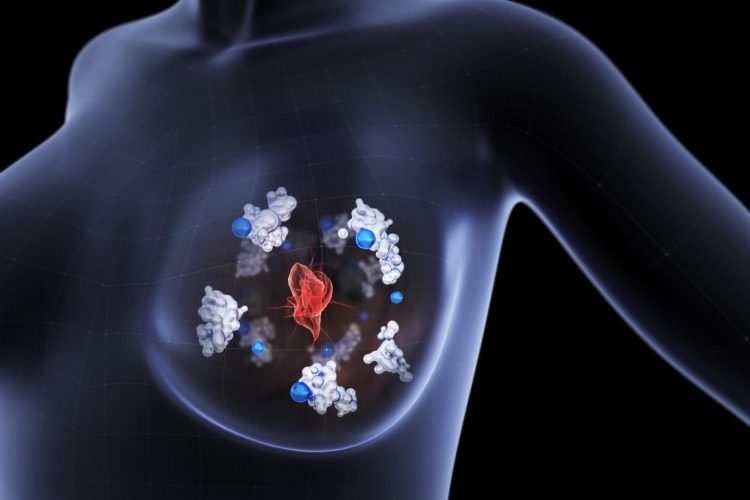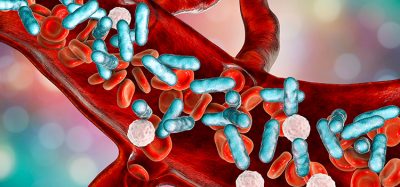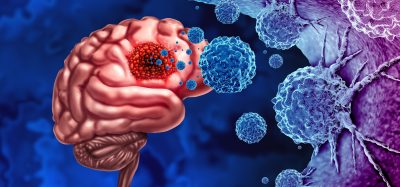Protein found to control breast cancer metastasis
Posted: 30 October 2023 | Drug Target Review | No comments yet
Scientists have discovered the motor protein dynein commands movement of cancer cells in soft tissue models, offering new clinical targets.


Metastasis, the spread of cancer cells throughout the body, is the most dangerous feature of any cancer. Research led by The Pennsylvania State University (Penn State) has now revealed the mechanics of how breast cancer cells can invade healthy tissues: a motor protein called dynein commands the movement of cancer cells in soft tissue models. This finding suggests novel clinical targets against metastasis which could potentially change cancer treatments.
Assistant Professor of Pharmacology at Penn State and lead co-corresponding author Dr Erdem Tabdanov said: “This discovery marks a paradigm shift in many ways.” He continued: “Until now, dynein has never been caught in the business of providing the mechanical force for cancer cell motility, which is their ability to move themselves. Now we can see that if you target dynein, you could effectively stop motility of those cells and, therefore, stop metastatic dissemination.”
This project has grown from a collaboration between Penn State’s Department of Chemical Engineering and Penn State’s College of Medicine, into a multi-institution partnership with researchers at the University of Rochester Medical Center, Georgia Institute of Technology, Emory University, and the U.S. Food and Drug Administration.
To view the migration of live breast cancer cells in two different systems modelled after the human body, the researchers used live microscopy. The first system, a two-dimensional network of collagen fibres, showed how cancer cells move through an extra cellular matrix that surrounds tumours and confirmed that dynein was key to the movement of cancer cells.
A three-dimensional model was the second system and was developed by a team led by Dr Amir Sheikhi, Dorothy Foehr Huck and J. Lloyd Huck Early Career Chair in Biomaterials and Regenerative Engineering and Assistant Professor of Chemical Engineering and Biomedical Engineering at Penn State. The second system was designed to mimic soft tissue using a network of microscopic hydrogel particles or microgels linked together in tumour-like shapes. The team found in both the two-dimensional and three-dimensional model that dynein was “indispensable” in the metastasis of cancer cells.
“Using these three-dimensional models that partially mimic a tumour, we discovered that if we block the dynein, the cancer cells cannot effectively move and infiltrate solid tissues,” Sheikhi explained. “In both models, we found that dynein is extremely important for cell locomotion, which suggests a whole new method for cancer management. Instead of killing the cancer cells with radiation or chemotherapy, we are showing how to paralyse them. This is great news because you don’t really have to kill the cells, which is a harsh approach that targets both cancerous and healthy cells. Instead, you just have to stop the cancer cells from moving.”
Tabdanov clarified that cell “paralysis” could prove to be an effective treatment strategy for cancer compared to chemotherapeutic treatments, because after surgical removal of the main tumour, it could prevent the cancer from spreading without damaging healthy tissues and cells.
“The trick with chemotherapy is to kill the cancer cells slightly faster than the rest of the body — it’s a race against time,” Tabdanov said. “Chemotherapy causes a lot of damage to the body’s normal, healthy tissues while it is busy killing the cancer. If we instead contained the cancer, stopped it in its tracks, we could keep the healthy parts of the body healthy.”
The scientists observed that because they have not yet done an animal or human trial, any potential clinical treatment is still remote. Sheikhi has filed multiple patents related to his team’s platform and hopes to use the technology to study numerous diseases, including other cancers.
“We are very excited about this collaboration with the Penn State College of Medicine, and our labs are working closely on other projects,” Sheikhi said. “I think these platforms could one day enable personalised medicine and personalised treatment for cancer and, hopefully, many other diseases.”
This study was published in Advanced Science.
Related topics
Cancer research, Drug Targets, Personalised Medicine
Related conditions
Breast cancer








